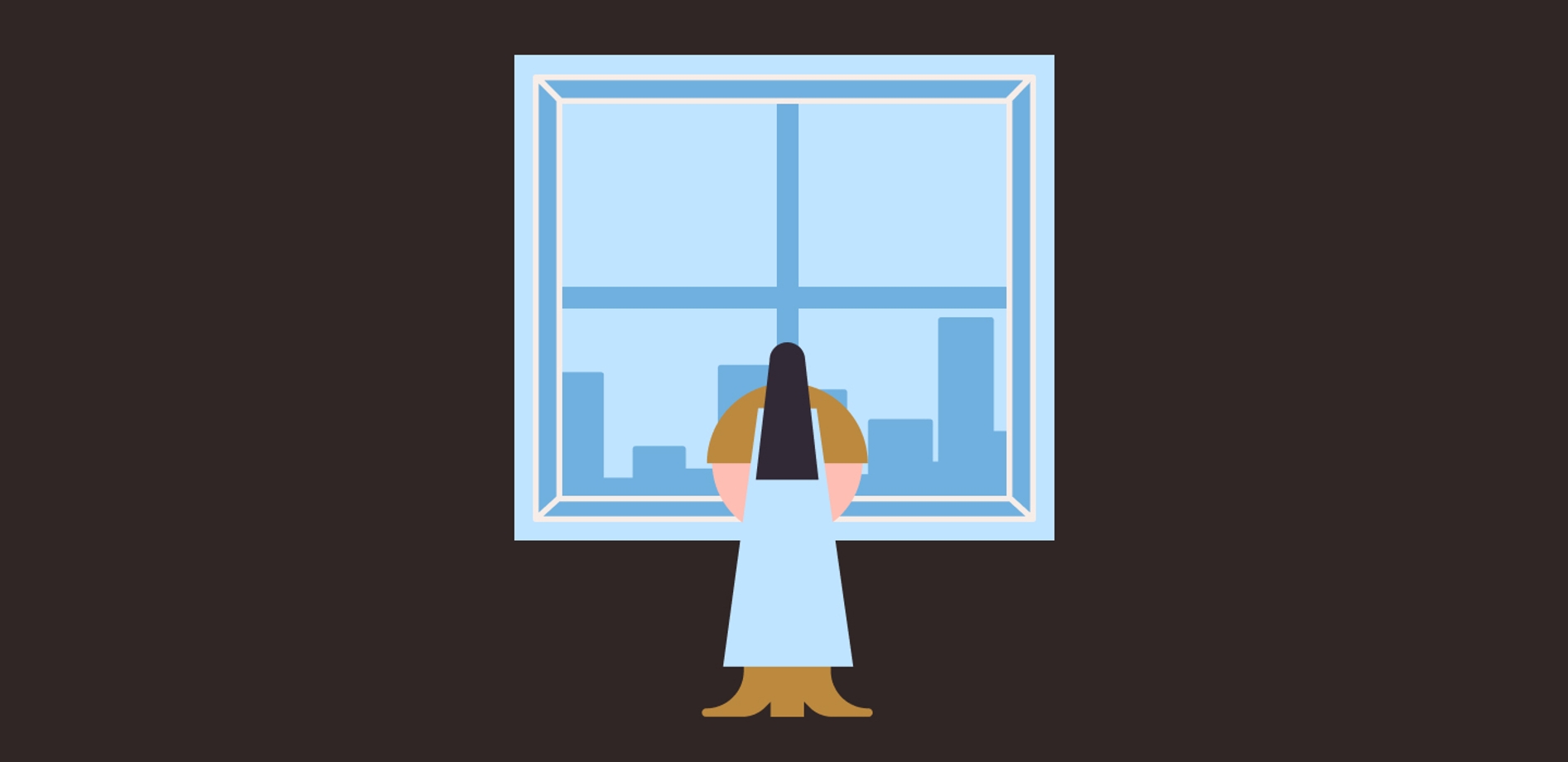Loneliness: How it impacts mental health and how you can deal with it
- Authors
- Dr. Claire Vowell
- Publish Date
Whether you spend most of your time by yourself, or in the company of others, chances are sometimes you feel lonely. And you’re not the only one—three in five Americans say they feel lonely with remote workers feeling lonely more often than in-person teams .
But loneliness is not just being alone in a space—it’s feeling alone in a way that causes distress. It happens when there’s a mental gap between what you want from your relationships and what you are actually receiving from them. For example, you may want deep and meaningful conversations with a friend or partner, but feel like you’re always skimming the surface in your talks.
How does loneliness impact mental wellbeing?
Simply put, loneliness is bad for your mental wellbeing and overall health. Humans are hardwired for social connection and have a fundamental need to belong. When we don’t feel sufficiently connected to other people in our lives, both our physical and mental health can suffer.
A recent study demonstrated that social isolation increases the risk of premature death across causes and race. In another large study , loneliness was shown to be as detrimental to lifespan as smoking 15 cigarettes per day. Social isolation is associated with a large variety of poor health outcomes, including depression, poor sleep, cognitive decline, and impaired immunity at every stage of life. And lonely feelings can also impact our working lives, causing us to feel less engaged, less productive and make us more likely to think about quitting or leaving our jobs .
“...loneliness is not just being alone in a space—it’s feeling alone, in a way that causes distress.”
Loneliness can lead to negative thoughts and feelings about many aspects of our lives. People who feel lonely may think they’re unlikeable, expect more negative social reactions and develop an overall negative picture of social experiences. This can lead to a downward spiral, causing them to withdraw further from friends and family, becoming more lonely.
Who experiences loneliness?
The global pandemic intensified feelings of loneliness for many, but long before lockdown, there was evidence that people were suffering the effects of loneliness. A YouGov survey in 2019 revealed that almost half of adults reported feeling lonely at least a few times a month. Perhaps most surprising is that in the same study, almost nine out of ten young people between the ages of 18-24 said they suffered from loneliness to some degree.
How can people handle loneliness?
Here are some easy, evidence-based ways to deal with any lonely feelings as they come.
1. Challenge your thoughts
Research has shown that challenging your negative automatic thoughts and reframing them can lessen feelings of loneliness. Try our Challenge your thoughts activity to take you through the process.
2. Increase your activity
Now that lockdown restrictions have eased, try joining a new class or group. Many people find volunteering provides them with a sense of purpose and it can also increase social contact. If doing these things feels like too big a step, start by joining a group online and challenge yourself to do something in person when you’ve built up your confidence.
3. Focus on the positives
Focusing on what you’re grateful for in your life can help you feel more positive. Whether you send thank you messages to people who have helped you, or do a gratitude exercise in a mental wellbeing app like Koa Foundations, spending a few minutes focusing on what you like about your day to day can help boost your mood and help keep loneliness at bay.
Looking for some guidance getting started processing your thoughts and feelings about loneliness? Koa Foundations can help. Log in for evidence-based support to help you navigate tough transitions and build your resilience.
What are some tactics you like to use to deal with feelings of loneliness? Let us know at support@koahealth.com
- ↑
https://newsroom.cigna.com/cigna-takes-action-to-combat-the-rise-of-loneliness-and-improve-mental-wellness-in-america
- ↑
https://www.mind.org.uk/information-support/tips-for-everyday-living/loneliness/about-loneliness/
- ↑
Hawkley, L. C., & Capitanio, J. P. (2015). Perceived social isolation, evolutionary fitness and health outcomes: a lifespan approach. Philosophical Transactions of the Royal Society B: Biological Sciences, 370(1669).
- ↑
Holt-Lunstad, J., Smith, T. B., & Layton, J. B. (2010). Social relationships and mortality risk: a meta-analytic review. PLoS medicine, 7(7), e1000316.
- ↑
Hawkley, L. C., & Capitanio, J. P. (2015). Perceived social isolation, evolutionary fitness and health outcomes: a lifespan approach. Philosophical Transactions of the Royal Society B: Biological Sciences, 370(1669).
- ↑
https://newsroom.cigna.com/cigna-takes-action-to-combat-the-rise-of-loneliness-and-improve-mental-wellness-in-america
- ↑
https://www.harvardmagazine.com/2021/01/feature-the-loneliness-pandemic
- ↑
https://www.ncbi.nlm.nih.gov/pmc/articles/PMC4391342/
about the author

Dr. Claire Vowell
Counseling Psychologist
Claire is a Counseling Psychologist and is passionate about improving access to mental health care. She works with the content team to create evidence-based interventions to improve people's mental wellbeing.
